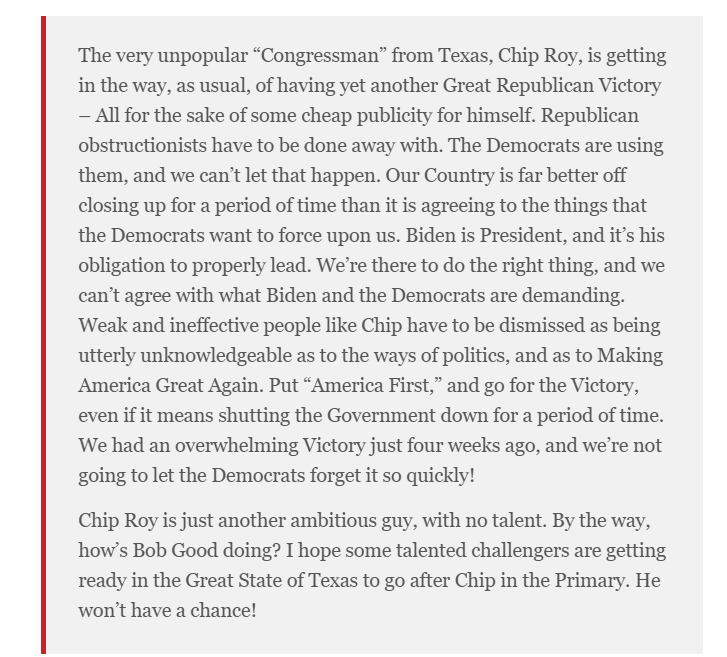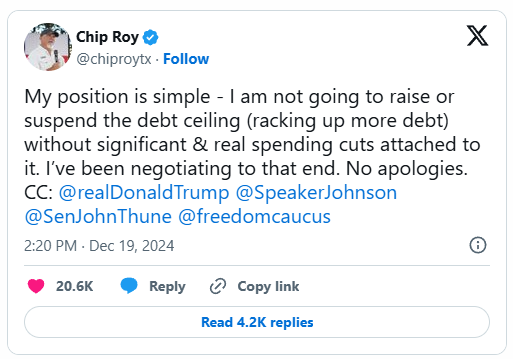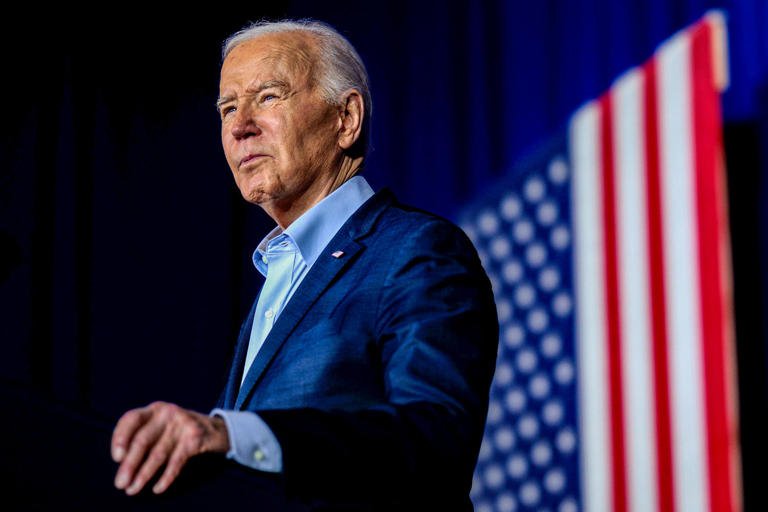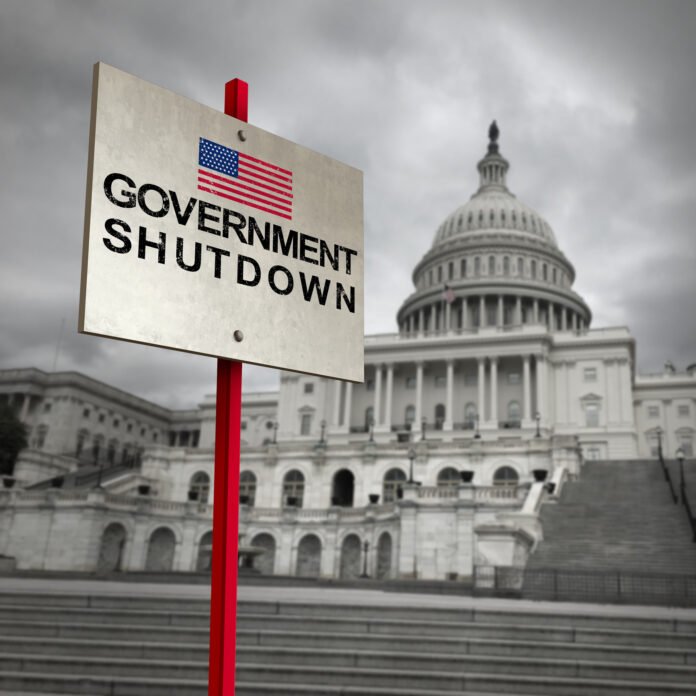When the fiscal year ended Sept. 30, Congress passed a temporary funding bill to keep the government in operation. They had until midnight Friday to come up with a way to fund the government or federal agencies were about to face a shut down, meaning hundreds of thousands of federal employees faced being sent home — or stay on the job without pay — just ahead of the holidays.
A bipartisan bill was in the works but all it took was a tweet from Elon Musk speaking against it for President-elect Donald Trump to order Republicans to cancel the bipartisan deal and demand an increase in the debt ceiling. Trump told House Speaker Mike Johnson to essentially renegotiate the deal. He insisted that if there was a government shutdown, Democratic President Joe Biden would be blamed.
Trump wrote about the renegotiated deal, “All Republicans, and even the Democrats, should do what is best for our Country, and vote ‘YES’ for this Bill, TONIGHT!” Trump wrote on Thursday before a vote on a version of the bill that included a higher debt limit. Trump’s demands shifted from eliminating the debt limit altogether to suspending it until 2027, and then to extending it until 2029.
Trump warned that if he didn’t get what he wanted, there should be a government shutdown. Trump and Musk were fully prepared to allow for a government shut down which would mean all federally funded programs would have been suspended. Without a funding plan, the shutdown would have gone into effect at 12:01 a.m. Dec. 21 and last until Congress passes a spending bill. He also threatened primary challenges for members of his own party who refused to comply, singling out Rep. Chip Roy of Texas by name with insults. Writing the following on his social media outlet, Truth Social:

Roy responded to Trump in a tweet.

Jean-Pierre on Thursday accused Republicans of “doing the bidding of their billionaire benefactors at the expense of hardworking Americans,” slamming the party for derailing the initial bipartisan agreement. The initial bill included must-pass items like funding for farmers and communities hit by natural disasters.
The House failed to pass a new funding bill on Thursday, when a vast majority of Democrats and 38 Republicans voted no, a stunning brush-off to Trump, whose power over his party has at times seemed near-absolute.
In typical Trump fashion he injected himself into the budget debate a month before his inauguration. This move highlighted his tendency to disrupt deals rather than make them, hinting that his second term might be marked by similar infighting and chaos.
In the end, lawmakers left out the debt ceiling increase, and a final deal passed early Saturday. Musk and other Trump allies tried to frame it as a win because the final legislation was significantly slimmed down and omitted unpopular items such as a pay raise for members of Congress. Conservative activist Charlie Kirk wrote on X that Trump “is already running Congress before he takes office!” House Speaker Mike Johnson, R-La., said he had been in “constant contact” with Trump, who he added was “certainly happy about this outcome.”
When in fact it was President Joe Biden who saved the day for millions of Americans by signing a government funding bill on Saturday, formally averting a shutdown crisis after Congress passed the bill.
The package funds the government at current levels through March 14 and includes $100 billion in disaster aid and a one-year farm bill. It did not include a debt limit extension demanded by President-elect Donald Trump.
“This agreement represents a compromise, which means neither side got everything it wanted,” Biden said in a statement. “But it rejects the accelerated pathway to a tax cut for billionaires that Republicans sought, and it ensures the government can continue to operate at full capacity.” The Senate vote was 85-11, and the House vote was 366-34.
“That’s good news for the American people, especially as families gather to celebrate this holiday season,” he added.
What are the impacts of a government shutdown?
Federal employees, including military personnel, would not receive their salaries. Non-essential agencies would cease operations, while essential workers such as federal police and air traffic controllers, would continue to perform their duties.
Citizens who don’t work for the government may be impacted as well if certain agencies are closed or understaffed.
Social Security: Payments for current recipients would continue because Social Security is deemed essential, but services for new claims could be delayed due to furloughed staff.
Medicare and Medicaid: Current recipients would continue to receive benefits, but new applicants could see delays.
Mail Service: The United States Postal Service would continue operations and remain open.
Student Loans: Student loan services would continue to process payments, and payments will still be due. Speaking with an agent or getting help may come with delays, however.
Passport Services: The processing of passport applications may be slowed or halted.
FEMA Cleanup and Protection: The agency will still respond to emergencies in the event of a disaster, but long-term projects would be delayed.
National Parks and Museums: Many national parks and federally funded museums would likely close or have limited operating hours.
Food Assistance Programs: People who receive benefits under the Supplemental Nutrition Assistance Program (SNAP) would continue to receive payments, but new enrollment or renewals could face delays.
Concerns about deficit spending could intensify if Trump pushes to extend the tax cuts, he signed into law in 2017 that are set to expire next year. Trump has called for further lowering the U.S. corporate tax rate from 21% to 15%, but only for companies that produce in the United States. He has said he will pay for the dips in revenue with aggressive new tariffs that economists warn will lead to higher prices for consumers.


